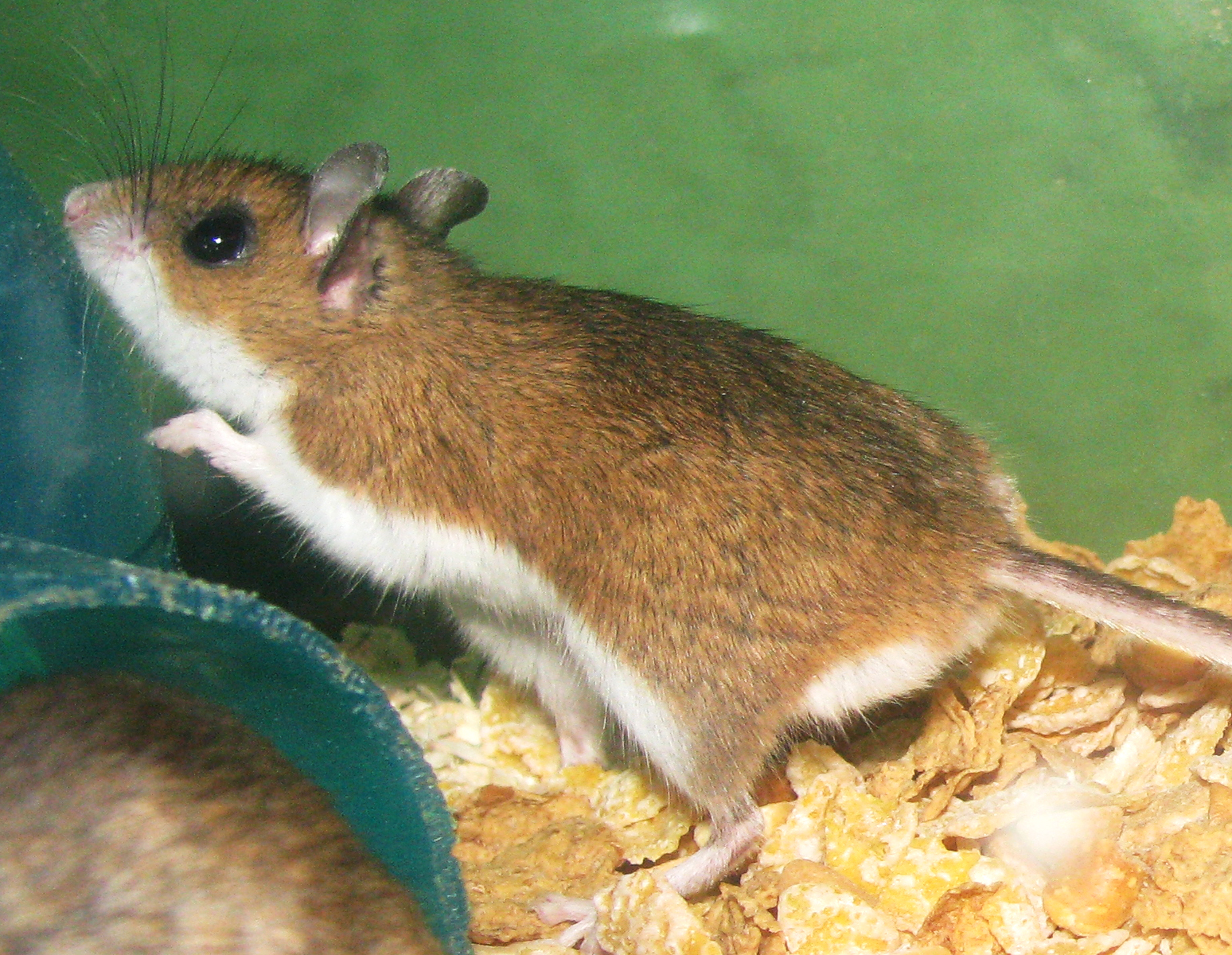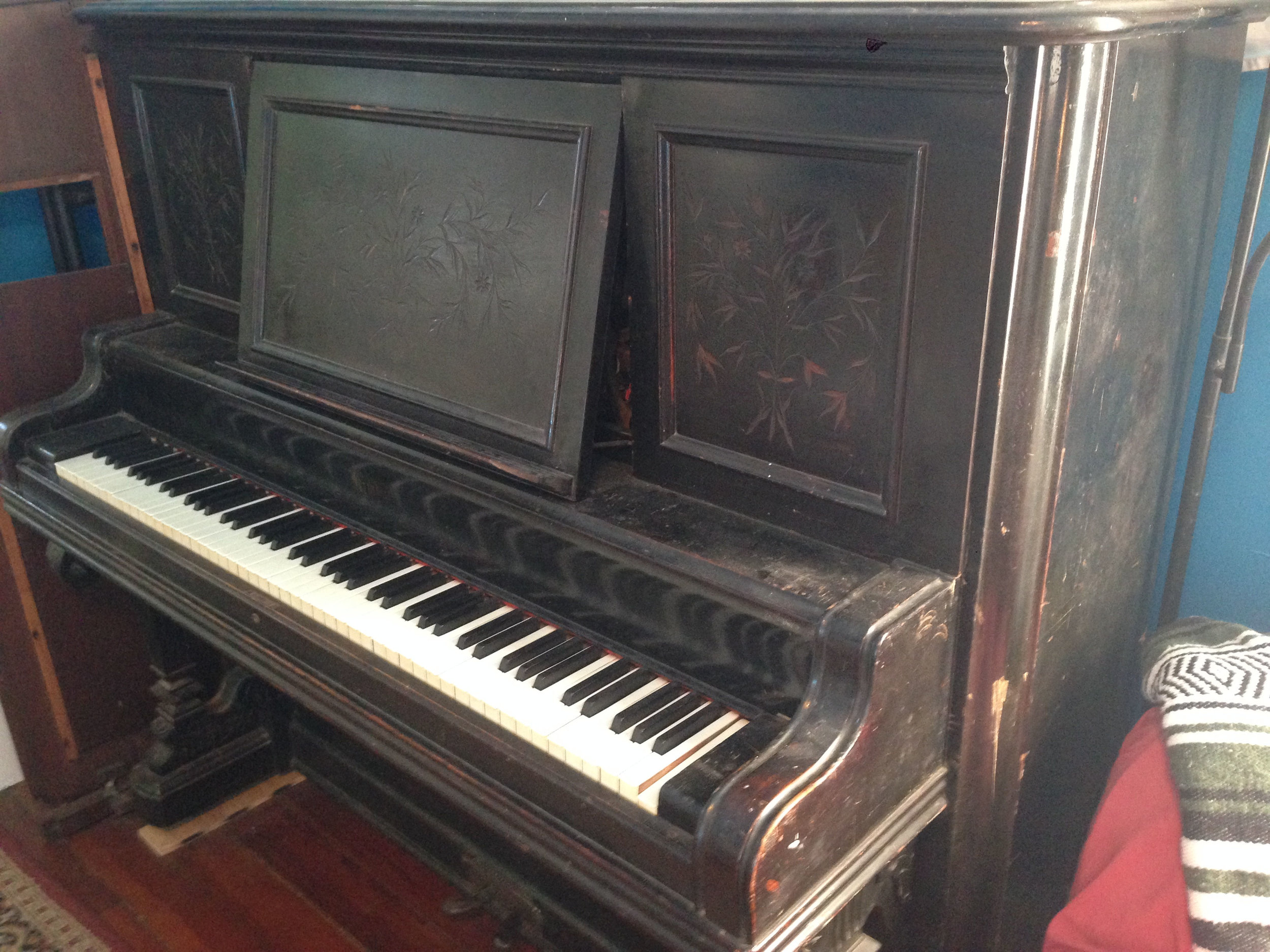A deermouse. (via Wikipedia)
Five years ago, I spent a few days hiking in Yosemite National Park with my family. A few days after we left, the National Park Service put out a notice of an outbreak of Hantavirus – a disease transmitted by air and hosted by mice. This was the first time I had ever heard of this virus with nearly a 40% fatality rate.
The relevance of this virus to piano tuners and piano owners is that old pianos often serve a second purpose as mouse hotels. Even if you haven't seen any mice around your house, if you haven't physically opened up your piano in the past few years and checked for mice nests or droppings, there is more than a slim chance that mice live or have lived in your piano. I would say that over 25% of upright pianos that I open up show some sign of mouse inhabitation.
There is a lot of concern about Hantavirus in the piano technician community (rightly so), but I find that there is also a lot of misinformation. I'd like to try to clear things up a bit here.
First of all, the Center for Disease Control and Prevention (CDC) is the best place to get good, non-sensationalized information about this issue. Hobbyist and even professional web forums are full of hyperbole and misinformation.
Hantavirus was first recognized in 1993 in Northwest New Mexico. Since it's discovery, more than 96% of reported cases have occurred west of the Mississippi River.
Hantavirus is spread through rodent feces and urine. It is kicked up into the air when mouse droppings are disturbed and causes infection when breathed in by humans. Hantavirus doesn't seem to live long once exposed to air or sunlight. For humans to become infected, there must be an active mouse infestation. Droppings that are more than several days old are unlikely to harbor the virus.
There have been only two cases of Hantavirus with known exposure in Louisiana.
The virus is carried by several species of rodent: the deer mouse, cotton rat, rice rat, and white-footed mouse. All of these usually live in rural areas, but the deer mouse and cotton rat can sometimes be found in cities under certain conditions. House mice rarely, if ever, carry the virus. Barns, sheds, and other unattached structures in rural areas are the most common places to find the virus, and therefore require the most caution when cleaning or working in.
Deer Mouse habitat.
Cotton Rat habitat.
White-footed Mouse habitat.
Rice Rat habitat.
Though there is no anti-viral treatment for Hantavirus, early detection does increase the likelihood of survival. Early symptoms are similar to the flu (fever, fatigue, muscle ache, upset stomach). These then progress into serious respiratory problems.
If you are showing these symptoms, be sure to mention any potential rodent exposure to the diagnosing physician.
Hantavirus is not contagious and cannot be spread by sneezing, coughing, kissing, or other bodily contact.
The best way to prevent Hantavirus infection is to eliminate the presence of rodents in and around your home. The Canadian Center for Occupational Health and Safety gives these tips:
Storing food (including pet food), water and garbage in heavy plastic or metal containers with tight fitting lids.
Sealing any holes in structures where mice may enter.
Cutting back thick brush and keep grass short. Keep woodpiles away from the building.
Using rubber or plastic gloves when cleaning up signs of rodents, handling dead rodents, or other materials. When finished, clean gloves with soapy water before taking them off. Wash hands with soapy water (again) after removing the gloves.
Setting traps when necessary. Put rodents in a plastic bag, seal the bag, and dispose.
Mouse nests and droppings can be soaked with a 1:10 solution of bleach & water. The nest material should be sealed in plastic and disposed of. All reusable gloves, respirators, or other protective gear should be wiped down with the bleach solution as well.
Hantavirus Pulmonary Syndrome Cases, by State of Exposure. (via cdc.gov)
For more information, visit these sites:
http://www.ucsf.edu/news/2012/08/12648/hantavirus-be-careful-not-fearful
https://www.cdc.gov/hantavirus/

















I have been servicing and tuning pianos in NOLA since 2012 after first becoming interested in piano technology in 2009. With a background in teaching bicycle mechanics, I bring a methodical mindset and a love of sharing knowledge and skills to the rich musical culture of New Orleans.